Making decorative candles & soaps is something that requires all the handwork and no automation of machines. When we bought an aromatic candle from a local store, the first thing that comes to our mind is who the artisan behind this beautiful thing?
What if we tell you most of the handmade businesses are owned by WOMEN. Yes, women are flourishing in the handmade industry with their mind-blowing creativity and stunning ideas.
If you scroll down the history of people working in the sector of a handmade business, you will end up noting down that more than 60% belong to the female society, from patterns to the detailed designing of various materials like candles, nursey mobiles, crochet, soaps, bath bombs and so on.
We talked to some women about how they turned their passion for crafting beautiful things into a successful business. Their stories are really inspiring and all the struggles they have gone through to gain respect in the craft industry.
Chrissy Howser, Founder of Conscious Candles Company
Chrissy, a mom and a wife who loves all things luxurious, including the aromas that fill the air of her home. Being a candle lover for most of her life, she took an interest in the ingredients of what she was burning in her home daily during the global pandemic.
After researching and really learning what her family was inhaling, she knew that some changes needed to be made. Mindfully crafted, Conscious Candles takes pride in hand pouring home fragrances that are safe for the environment and yet still luxurious.
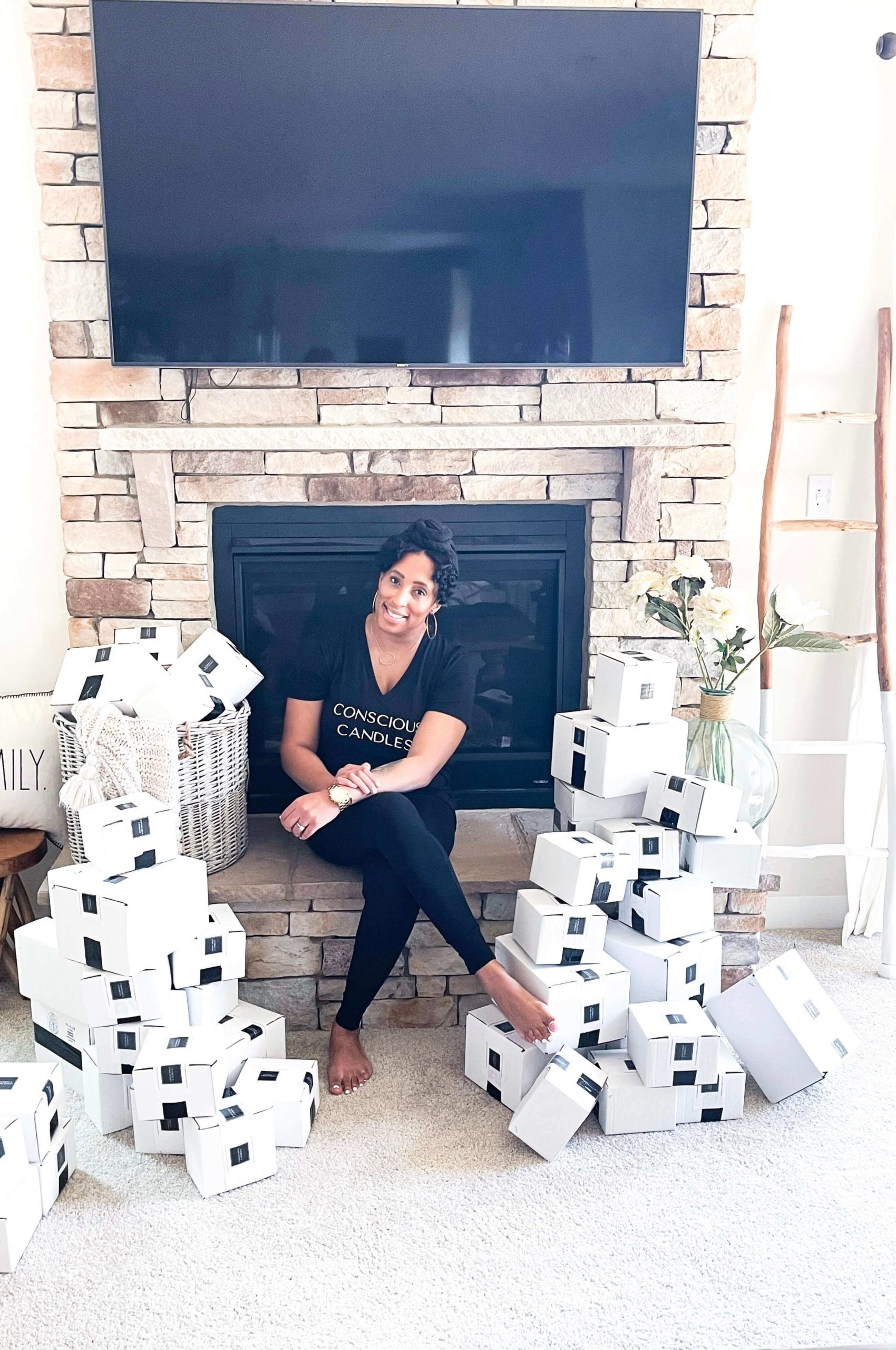
Her vision with Conscious Candles Company to transform one’s environment into a luxe space boosting with the opulence of the cleanest and purest scents. Conscious Candle’s design is sleek, minimal, and universal. Some of the Conscious Candles even come with a complimentary music playlist to truly set the vibe.
All of the Conscious Candles are made with just three simple ingredients: Wooden Wicks, 100% American Grown Soy Wax, and Premium Fragrance Oils.
What challenges did you face at the start of your business?
Delays and shortages. It has been kind of hard to source supplies with the pandemic.
What inspires you to turn up your craft hobby into a mind-blowing business?
During the pandemic, I was spending more time at home burning candles. I started researching the ingredients and quickly realized candles from my favorite big-name brand companies were not good for my health or the earth. This inspired me to find a way to design a candle that lasts way longer than my store-bought candles, eco-friendly, vegan, and smells good too!
How do you think the handicrafts industry is evolving in the last few years?
I think it is explosive right now. Being at home has pushed many people to find different ways to stay active, and crafting has been one of them. I hear about many craft hobbies becoming successful businesses. Also, I think that a lot more people are inclined to support local and shop small as opposed to going to big-box brand companies.
Any advice you would like to give others who are planning to turn their hobby into a business?
While your craft is fun for you and could very well be interesting to a consumer, make sure you do your homework. Make sure you research, research, and research again! Making candles is something that I’ll always have to test and research to make sure I’m delivering a quality, safe product. This also goes for any crafter who’d like to turn a craft into a business. So have lots of patience, be prepared to spend a lot of money, buckle up and get to it!
Erin J. Martinelli, Founder of Erin Martinelli Fine Art
Erin J. Martinelli lives in Northern California with her husband, daughter, three German Shepherds. An amazing artist who finds her inspiration in landscapes, seascapes, animals, and architecture. She loves creating brilliant acrylics and etching prints.
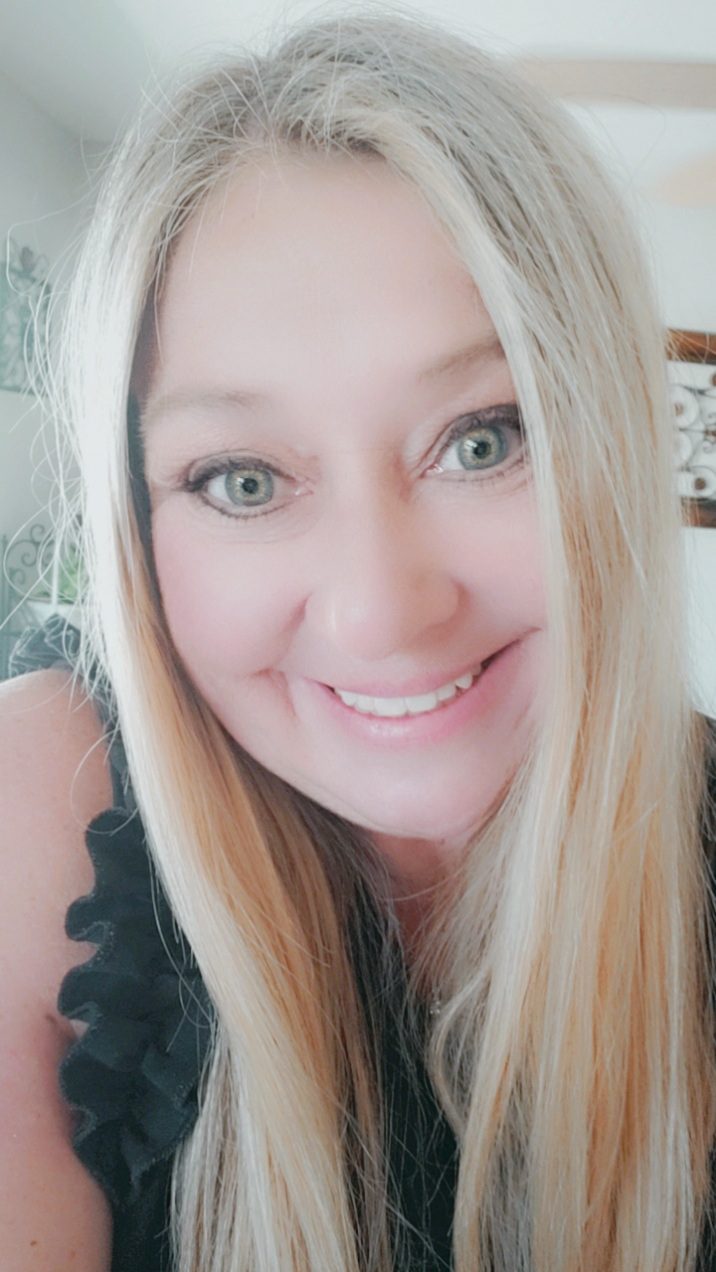
Erin founder her love for painting at the very early age of seven years old at The Casements in Ormond Beach, FL, the former winter home of John D. Rockefeller. She then later studied at the University of Cincinnati (DAAP Program) College of Design, Architecture, Art, and Planning.
What inspires you to turn up your craft hobby into a mind-blowing business?
Are you ever drawn to a time and place or a thing in your life, no matter where you are living today? I am, each day! Growing up in Ormond Beach, Florida, just a few miles from the sandy white beaches and green, blue waters, I am drawn to that place in a time of my youth. Especially now that I am living landlocked in Sacramento, California. I am absolutely obsessed with painting with the color green-blue.
What challenges did you face at the start of your business?
As a creative, I have always dreamed big and bold. I started off my hobby when I was single, and it was very successful. However, life gets messy. I got married, and we had a child, a beautiful little girl. Being a mom is fantastic, but it doesn’t leave you with an abundance of spare time. In 2014 I was also diagnosed with a debilitating autoimmune disease and hospitalized with Guillain-Barre Syndrome. I lost all reflexes in my arms and legs and have spent years gaining that strength back. I have worked really hard to learn how to carve out time for my passion and business.
How do you think the handicrafts industry is evolving in the last few years?
For creatives and artists like myself, the industry is just exploding. Social media like Instagram, Facebook, and Pinterest, to name a few, are such great vehicles for visual artists. However, the learning curve is steep, and not being super tech-savvy or having an abundance of spare time to learn how to market yourself best is difficult and does present challenges.
If not the crafting business, then what other business will you be doing?
I can honestly not imagine myself not being creative. I would continue to focus on enjoying life, volunteering, helping victims of crime (children). Art offers something that is healing for the soul.
Any advice you would like to give others who are planning to turn their hobby into a business?
Yes, stay involved and learn something new each and every day. Find your tribe of women who will push and inspire you. Get involved and engaged, join a local art gallery or community, immerse yourself in the process. You will find little nuggets along the way; just keep picking them up and build each day on your foundation. Most importantly, stay true to yourself, your story.
Tiffany Heavlin Riffer, Founder of Tiffany Riffer Soap
Tiffany Riffer Soap, a Washington, DC based business, specializes in making natural homemade soap using the cold process soap method. All of Tiffany’s artisan soap is made in small batches, using the finest ingredients. Tiffany’s soap is plant-based, with the occasional use of honey.
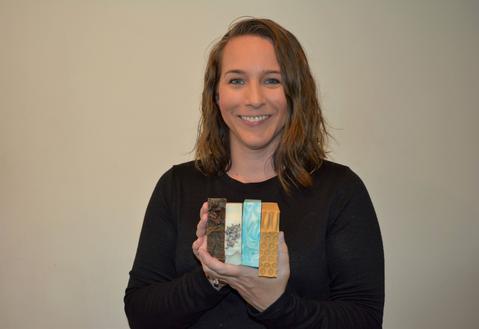
If not the crafting business, then what other business will you be doing?
In addition to starting my soap business, I also work a full-time job as a product liability attorney, and I earn a secondary income trading stock options in the financial markets. I wear a lot of hats.
What inspires you to turn up your craft hobby into a mind-blowing business?
I started making soap as a hobby in January 2020 that quickly became a passion and creative outlet that I could focus my energy on while in lockdown. After making dozens of batches, I felt confident enough to share with others who were not immediate family and officially launched my business in June 2020. Practically speaking, I also needed to turn it into a business to recoup some of the expenses involved in the craft itself. I love making soap and always want to create more beautiful designs, but it was not realistic to keep it only as a hobby. By launching my business, I get to share my creative passion with others who are also interested in natural, handmade products.
How do you think the handicrafts industry is evolving in the last few years?
I think more and more people are entering the market in all categories. This isn’t necessarily a bad thing, but I think any new or existing participants should give a lot of thought and consideration to how they are going to stand out from the crowd. I am constantly thinking about how to make my soap pretty and unique so that it doesn’t look like other soap maker’s products.
Any advice you would like to give others who are planning to turn their hobby into a business?
Think long and hard about your end goal, how much money you can and are willing to spend for investment purposes, and don’t be discouraged by periods of low sales activity. It takes time in any industry to meet your goals, and this is certainly not an overnight process. Lastly, make sure you continue to love what you are making. The second it feels not fun, or you feel dispassionate about it, it’s time to revisit your goals.
Emma Musto, Founder & CEO of From Spark To Flame Luxury Candle Co
Emma Musto is the founder and CEO of From Spark To Flame Luxury Candle Co. All their candles are handmade in small batches with clean-burning soy wax and the highest quality essential oils! Then enclosed in beautiful eco-friendly glass containers that are meant to be reused and repurposed.

What inspires you to turn up your craft hobby into a mind-blowing business?
I have always been passionate about good-smelling fragrances and beautiful candles, but I always found it difficult to find both at the store. Finally, I decided to start my business where I would combine my favorite scents with beautiful glass containers that can be reused and repurposed after burning your candle. It was a more sustainable and pleasant way to shop for candles, and it turned one of my passions into a booming business!
What challenges did you face at the start of your business?
Figuring out how to produce larger quantities the most cost-effectively and efficiently and dealing with high costs of shipping that I wasn’t aware of before starting my business. Luckily I figured those things out as I went along, and sometimes it’s just trial and error until something works.
How do you think the handicrafts industry is evolving in the last few years?
I definitely think more handicraft businesses are moving online. Storefronts aren’t as practical for someone just starting off, and the pandemic has shown the value of selling and having a business online. An online business also means entrepreneurs can start small and work their way up as you grow.
If not the crafting business, then what other business will you be doing?
I also run a digital marketing agency called Musto Media & Marketing. We specialize in monthly social media management, content creation, and website design for woman-owned businesses.
Any advice you would like to give others who are planning to turn their hobby into a business?
My best advice is to just go for it! Take the leap of faith and start somewhere. There are so many tools and platforms to help new entrepreneurs that you don’t need a lot of money or stock to start something up. You can use websites like Etsy, Shopify or even create your own online store on Facebook and Instagram where you can sell your products. You can start small and work your way up, and you probably won’t regret it!
Flora Sayers, Founder of Right Side Patterns
Flora Sayers, a 20-year-old student is the founder of Right Side Patterns. Right Side Patters is a digital sewing pattern company and sewing blog. Right Side was started with the goal of making sewing accessible, affordable and trendy for a new generation of sewers and since its launch in August 2020 has had over 5000 sales in over 60 countries.

What inspires you to turn up your craft hobby into a mind-blowing business?
I learned to sew as a kid and immediately fell in love with it. By the time I was 14, I was spending my weekends teaching the younger kids at my sewing club how to sew their own clothes.
From this, I found out that I loved teaching others just as much as I loved learning. After being sent home from university due to Covid in March 2020, I had plenty of time to spend on sewing and started developing my own patterns. I found that commercial patterns were often difficult to use or outdated in style, and I didn’t want these to perturb a new generation of sewers. As a result, I decided to start selling my own patterns and instructions with the aim of teaching and inspiring a new generation of sewers. From there, the business has just kept growing!
What challenges did you face at the start of your business?
Initially, I found the time management side of entrepreneurship really difficult. I had no real plan for what I was doing and felt a bit like a fish out of water. Over time, however, I started to gain knowledge of what I needed to do, when, and how to prioritise my tasks. Time management is definitely something I still struggle with, but I have found that writing lists and dividing the business into parts (advertising, pattern-making, finance, etc.) is really helpful for compartmentalizing each task and not getting too easily distracted.
How do you think the handicrafts industry is evolving in the last few years?
I think the handicrafts industry has experienced real growth in the past year or so since Covid and lockdowns became a part of our lives. Since people have been forced inside and often found themselves with a lot more time on their hands, many handicrafts have become a great creative outlet. I think lots of ‘lockdown skills’ are likely to stick with people as a new hobby that both creates new things while also being potentially therapeutic as an action in itself. I know many of my customers took up sewing for the first time in lockdown and now incorporate it into their daily lives regardless of what else they are doing.
If not the crafting business, then what other business will you be doing?
I am currently finishing up my BA in Philosophy and will be starting my MSc in Gender in September. After graduating in 2022, I hope to still be working on Right Side Patterns while also pursuing a career in the third sector. I have a keen interest in gender relations and human rights and hope to cultivate this interest through my MSc programme. Right Side Patterns started as a ‘side-hustle,’ and so I have no strict plans for its growth or where it will all lead me to, but for now, it remains something I simply love to do.
Any advice you would like to give others who are planning to turn their hobby into a business?
I distinctly remember receiving my first bad review and being devastated that they didn’t like my product and terrified of the potential impact on my business. I think this is a common problem for people who turn their hobby into a business as it seems like you are commercializing something deeply personal. As a result, I think it is really important to be able to separate the two – the business and the hobby. This doesn’t mean that they don’t play into one another but that there are parts of each that remain separate. This way, things like bad reviews become opportunities for business improvement and growth rather than personal criticisms. Turning a hobby into a business comes with a lot of challenges, but I definitely think they are all worth it when you get to watch others enjoying your handiwork and to put it to good use.
Bella Joy Q. Bardollas, A Filipina Botanical and Fiber Artist
Bella Joy Q. Bardollas is a Filipina Botanical and Fiber artist based in Uppsala, Sweden. She began her handicraft journey in 2013 when she left her full-time job as a high school teacher. Unlike other crocheters who work on blankets, clothes, and amigurumi, she works on fashion accessories. After six months of having her business, she got an opportunity to supply crocheted fashion accessories to different Malls in Manila. However, after a year, she realized that making designs for mass production can be very challenging and stressful. This is why she stopped selling her products to malls and focus and began sponsoring fashion shows and exhibits in Manila.
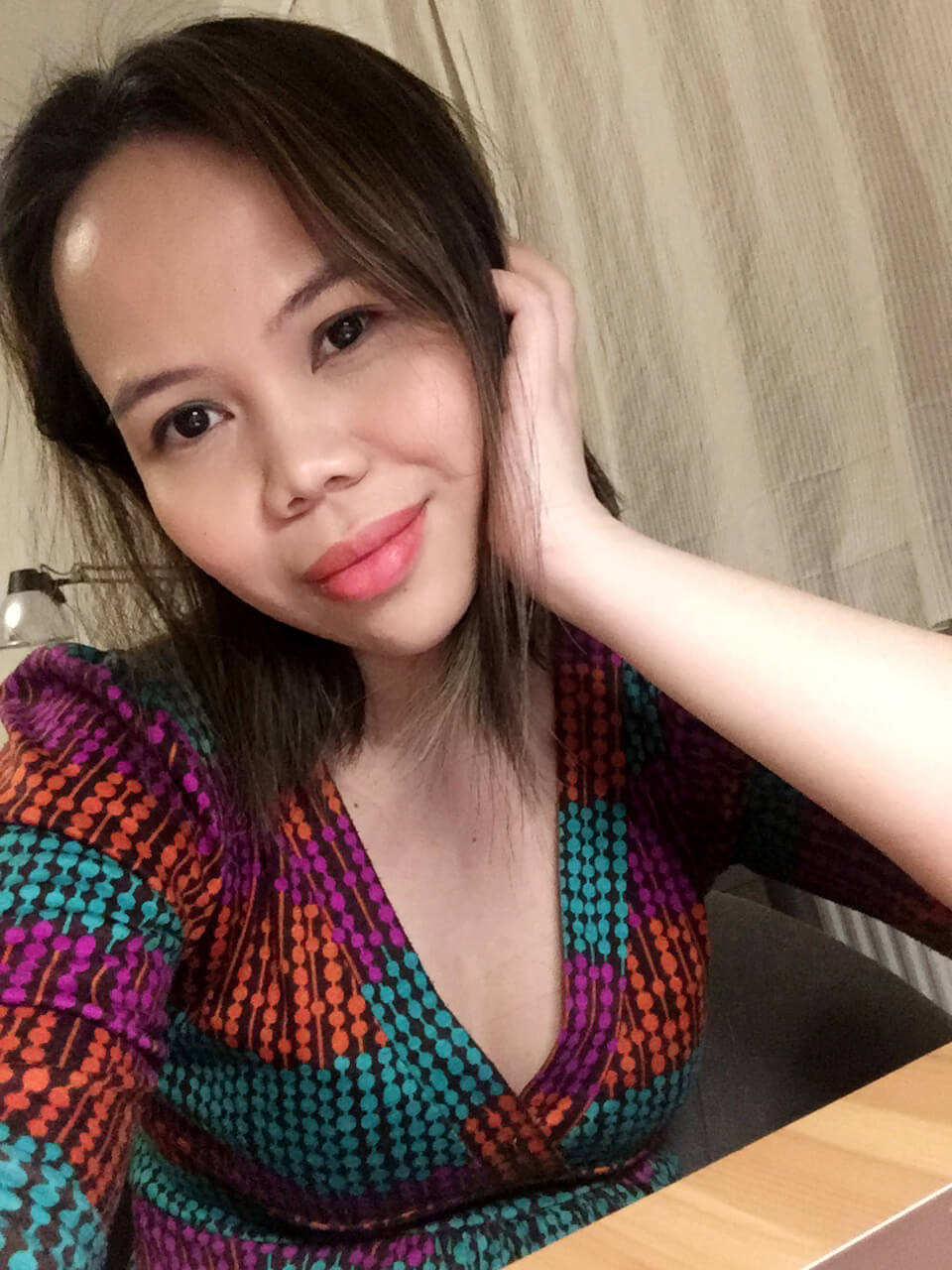
Along with this, she has another hobby which is Resin Art. At first, she found resin a wonderful tool to polish the stones. But then she realized that resin could be a wonderful medium of art. Today, she is managing these two businesses while focusing on a Master’s degree here in Uppsala.
What inspires you to turn up your craft hobby into a mind-blowing business?
With my crochet business, it’s the desire to be in full control of my time. As they say, “time is the new currency.” When I began my fiber art business, my love for crafts continued until I discovered resin and started creating accessories inspired by nature.
Aside from nature, I also draw inspiration from “feelings.” I always create designs that radiate feelings of happiness, love, fear, etc. The will to express emotions through art pushed me to pursue my resin business at the time of the pandemic (i started doing resin art in 2019 and became serious about it in January 2020). Creative entrepreneurs became a refuge for different people during the first months of the pandemic, where everything seemed to be uncertain.
What challenges did you face at the start of your business?
The lack of knowledge when it comes to running a business was my main concern. I didn’t have any idea about marketing and branding at the beginning. Everything I know right now was self-taught. When I began my crochet business, I really had problems with promoting my brand and getting customers. But later on, I managed all of this through different strategies, such as joining different bazaars and exhibits. On the other hand, since I have ideas on how to run a business, my resin business started pretty well…until the pandemic happened. So with resin art, it is the pandemic that challenged my creativity and finances. It was hard to be creative when you are stressed with the situation. But I continued working on my art; I continued being active in social media. That is when I realized what I said in the previous question, that artist pages like mine are a haven of peace for people.
How do you think the handicrafts industry is evolving in the last few years?
The pandemic is one of the greatest factors that affected different crafts businesses in the world. The pandemic made crafters shared their works online through videos, photos, etc. I know it has been done before, but now, artists around the world have seen the power of the internet in showcasing their work. In other words, artist-entrepreneurs aren’t confined anymore in their studios or workbenches; the world is getting to know them through the internet.
If not the crafting business, then what other business will you be doing?
The only fallback I have is teaching. So if I’m not into crafts, I’ll be on a social business, focusing on empowering teachers in the Philippines.
Any advice you would like to give others who are planning to turn their hobby into a business?
I love the line by Tim Ferris, “Someday is a disease.” I always have that in mind. So if you have a hobby and you’re thinking of starting a business out of it, go for it! Start small, maybe create a Facebook or IG page to establish your presence online. Gradually identify and focus on your niche. Develop more of your skills in that hobby—Practise and Research on how you can improve your work. The most important thing is to find your “uniqueness” before offering your craft to your market. Being YOU in the crafts industry is the most important of all, as it will set your place in the field.
Kaitlin Barthold, Founder of Originally Lovely
Through the use of modern silhouettes and unexpected simplicity, she aims to inspire others to add more handmade items to their wardrobes and lifestyles. Kaitlin pushes the limits of knitwear, emphasizing sustainability, slow fashion, and a deeper connection to the things we create and consume. She believes that with a little work, we can make everything in our lives, Originally Lovely.

What inspires you to turn up your craft hobby into a mind-blowing business?
After college, I really didn’t know what I wanted to do. I went to school for architecture but ended up changing my major and graduating with a marketing degree. I was applying for jobs and had a few offers but ended up turning everything down. Around that time, I became aware of niche content websites and blogs and started looking into what that business model consisted of. I had been designing patterns and making my own clothing and designs for as long as I could remember, felt pretty confident in my writing skills, and had unique design experience and education from my architecture schooling. Eventually, I was able to combine these skills together and come up with a plan for myself. I took a risk and just started; I dove in headfirst, knowing I would have to change things along the way.
What challenges did you face at the start of your business?
I was so shocked by the number of things that went into running my own business. I knew it would be hard, but I really didn’t understand just how hard. The designing is what everything is centered around, but to support that, I have to stay on top of so many things and basically do what every department would do in a larger business. I can’t focus too hard on just one task because then other things fall behind. It’s a constant balancing act.
There are still people who say I just’ sit around and knit all day,’ and at this point, that is just comical to me! I totally wish I could knit all day!
How do you think the handicrafts industry is evolving in the last few years?
Handicrafts such as knitting, crochet, and sewing used to be considered ‘grandma’ crafts. Don’t get me wrong; people still make jokes that it’s for grandmas, but those people really have no idea what they are talking about. Handicrafts are definitely not only for older white women. They are for anyone and everyone who has an interest in making! I know many talented makers of all backgrounds, demographics, and ethnicities; black, white, old, young, male, female, non-binary. The industry as a whole is starting to recognize this and represent it more and more. If you go back 10 years and look at any knitting magazine, I’m sure you will see photos of white women on all the pages. Today, you can see a wide range of people in most publications, and it is amazing.
Another huge change I’ve seen in the last few years is size inclusivity. Many makers want to knit or crochet to make their own clothing that actually fits them! More and more pattern designers are releasing size-inclusive patterns that are graded at least up to 5XL and are customizable to your own measurements. This is necessary step-in making the craft accessible to all.
If not the crafting business, then what other business will you be doing?
This is a tough one! I think I would enjoy working in the film or media industry. I love the visual representation of concepts and ideas. I can appreciate any story well told and love the ways that images can convey strong feelings and emotions. I could also see myself as an artist, most likely a painter. I’ve never given much time to develop this skill, but I could really see myself enjoying it.
Any advice you would like to give others who are planning to turn their hobby into a business?
When I started out, I wasted a lot of time trying to do what was already done. I was following old business models and techniques. The thing is that already happened, and by doing it the old way, you will have to compete with everyone else. It’s better to just trust yourself and make strategic decisions based on the current information you have; ignore the rest. Ignore everyone else.
There is no rule book or guideline for how to do this. When you start your own business, you are totally on your own. I’ve realized that basically, if it’s being taught in school or in a book, it’s already irrelevant. The world just moves so fast because of the internet.
Also, know that the hobby is just a portion of what goes into it. You can be the best maker in the world, but if you don’t know how to market yourself and establish a brand, no one will ever see your work!
Alyssa Perkins, Founder of Nursery of Eden
Alyssa, a 28-year-old full-time crafter with a successful online business selling custom baby mobiles for the modern nursery. She has two baby girls who inspired her to leave her full-time job in Autism therapy 3 years ago to be an at-home creator, and that makes her a happier Mother! With her handmade business, she supports her family and got millions of love by creating sweet custom baby mobiles.
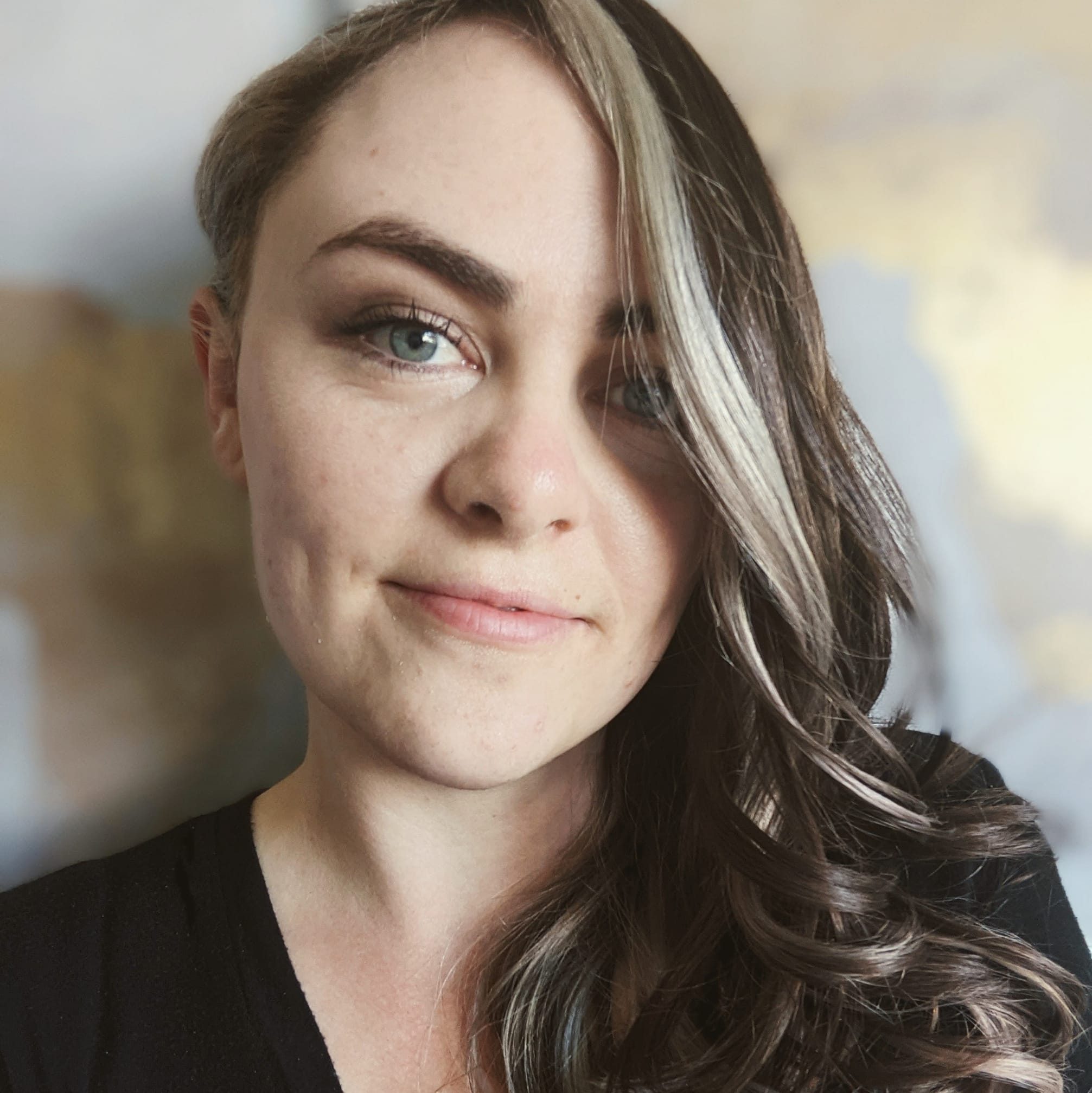
What inspires you to turn up your craft hobby into a mind-blowing business?
The birth of my daughter really changed my perspective on my career. My once fulfilling 9 to 5 became torturous, and I began to seek options that would allow me to work from home. I was worried my handmade business wouldn’t be able to replace my previous income, but with months of full-time dedication, that dream became a reality! I am still just tickled at how well my business was taken off.
What challenges did you face at the start of your business?
Entering the handmade business is daunting, especially when comparing yourself to an established shop that would be your direct competitor. Starting from zero was a challenge, but I tried to focus on the small successes and consistency as I built up a social media following and slowly accumulated reviews. I knew nothing of social media marketing or online business as my previous career was in therapy with ASD with a degree in neuroscience. I enjoyed the challenge of learning and dedicated hours a day to researching everything I could about my new field.
How do you think the handicrafts industry is evolving in the last few years?
Online selling is evolving the industry. New social media apps are taking the web by storm, and staying up to date is more important than ever with these platforms. One specific example is advertising through Tiktok. Short-form videos are the new flat lay, and videography skills are a must. Sellers that can capitalize on this definitely have a leg up.
If not this crafting business, then what other business will you be doing?
I dedicate my full-time attention to my online crafting business and my family of four.
Any advice you would like to give others who are planning to turn their hobby into a business?
If your goal is to create a full-time business, you need to be ready to dedicate your full-time attention and energy to it. My business was a success because I poured several months of full-time work into it upfront. I would also advise others to be ready to work outside their comfort zone. Trying new things and expanding your skills will help your business grow.
Keep an open mind, celebrate the baby steps, and don’t let a bad review stop you! Take the positive and negative feedback as constructively as possible and recognize that you and your business are a living, growing thing that needs outside information to best evolve.


